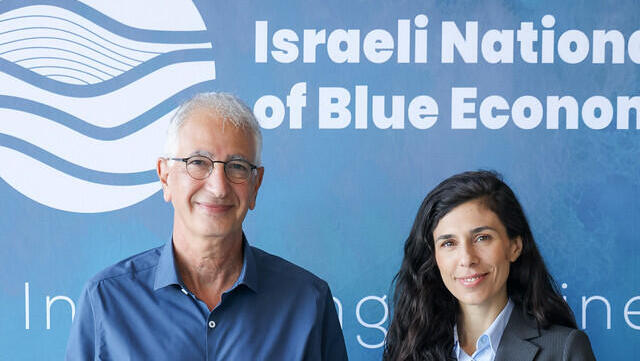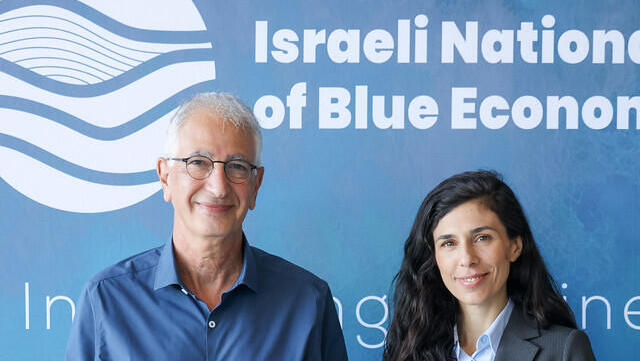
OpinionIt's time to dive deeper into the blue economy in Israel
Opinion
It's time to dive deeper into the blue economy in Israel
"As the world continues to focus on the ocean as a key resource for economic development, Israel's role in shaping the future of the blue economy will only grow stronger," write Lior Hanuka and Hila Aranreich.
Israel is uniquely positioned to become a global leader in the blue economy, thanks to its inherent technological strengths in agriculture, biotechnology, desalination, and its strategic location at the crossroads of Europe and Asia. As the world increasingly focuses on the sustainable use of marine resources, Israel's innovative ecosystem offers a strong foundation for the development of leading technologies in this field.
A significant milestone
In 2022, a significant achievement was recorded in the Israeli blue economy with the establishment of the National Center for Blue Economy, led by HiCenter, following a government decision to declare Haifa Israel's blue economy capital. This decision is part of the collaboration between the Israeli government and the European Union, aiming to promote sustainable ocean management.
The establishment of the National Center for Blue Economy, led by HiCenter, has marked a significant advancement in Israel’s role within the global blue economy. Over the past two years, the center has invested in more than 25 blue tech startups, cultivated valuable international relationships across diverse marine industries, and attracted leading venture capital. These efforts have not only enhanced Israel’s position in the field but also earned recognition from the United Nations, underscoring the country’s commitment to sustainable marine innovation.
Global blue growth
These initiatives coincide with the global boom in the blue economy, especially in key countries like Norway, the UK, Australia, and Portugal. These nations have recognized the importance of promoting a sustainable growth engine that responsibly harnesses marine resources while prioritizing ecosystem preservation. Today, Haifa has established itself as a leading city in the blue economy and is actively collaborating with other major cities in this field, such as San Diego, Barcelona, and Lisbon. This global collaboration not only strengthens Israel’s role in the international blue economy but also highlights its commitment to sustainable innovation.
However, to leverage and maximize the enormous potential of the blue economy, several immediate steps must be taken: The state should establish funds to support innovative projects in the blue economy sector and provide financial incentives, such as grants, tax breaks, and direct investments in ventures in the field.
It is essential to encourage private investments in ventures through collaborations with international companies and venture capital funds and to allocate dedicated state budgets for research and development in the field—investment in higher education institutions and research centers that can develop innovative technologies and generate relevant knowledge.
As the world continues to focus on the ocean as a key resource for economic development, Israel's role in shaping the future of the blue economy will only grow stronger. Through continued investment in research, core technologies, and sustainable practices, Israel has the opportunity to set the standard for a thriving, sustainable blue economy in the decades to come
Lior Hanuka is CEO of HiCenter and founder of the National Center for Blue Economy. Hila Ehrenreich is Chief Executive of the National Center for Blue Economy and Innovation.















